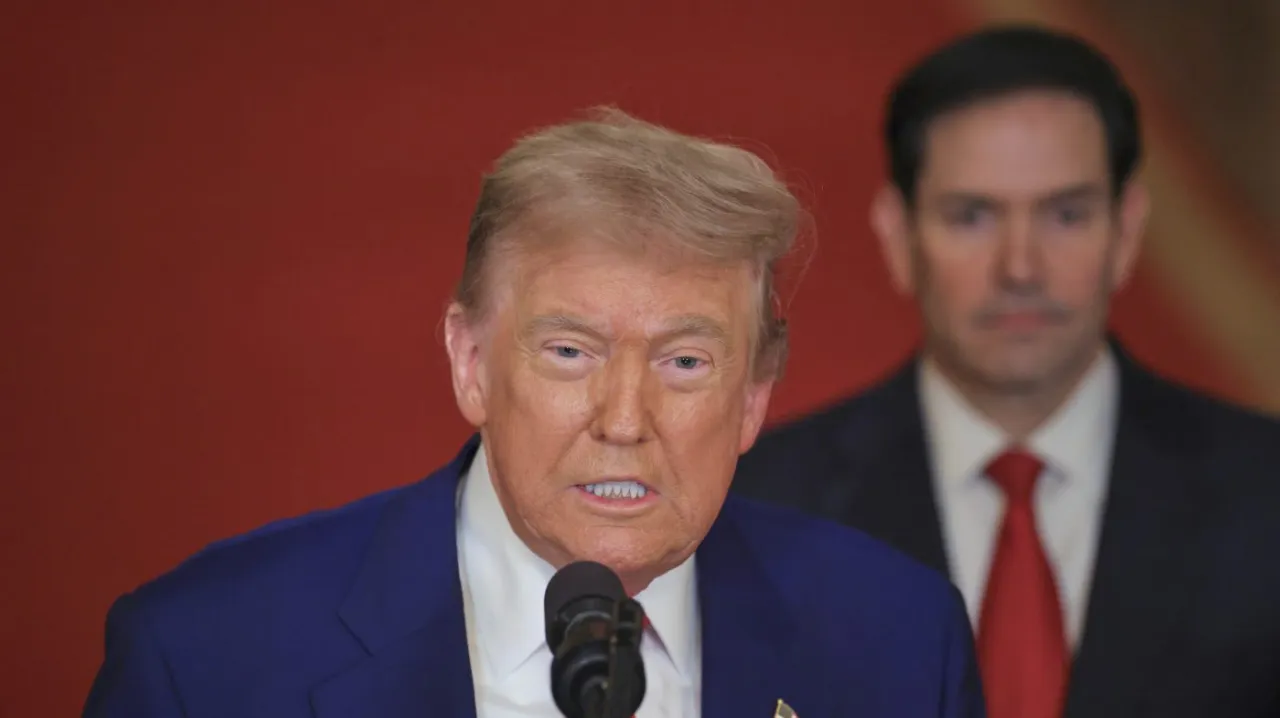
Trump strikes spur tug-of-war over Iran endgame
How did your country report this? Share your view in the comments.
Diverging Reports Breakdown
Trump strikes spur tug-of-war over Iran endgame
Iran retaliated with missiles fired at the U.S. air base at Al Udeid in Qatar, which were shot down without any reported casualties. Trump thanked Iran for giving advance notice of the strike and later announced a ceasefire deal that he said would end the “12 day war.” It’s unclear whether Tehran is ready to resume negotiations over the future of its nuclear program, or how long the ceasefire will hold if it doesn’t. Critics in Congress have introduced a war powers resolution to try to block any further military action against Iran.“It stands to reason that this would be a sort of a doubling or tripling of leverage,” said Barbara Leaf, who most recently served as assistant secretary for Near East policy in the Biden administration, of the military strikes. “What happens next is up to the regime — the regime wants peace, we’re ready for peace. They want to do something else, they’re incredibly vulnerable,’ she said.
Iran on Monday retaliated with missiles fired at the U.S. air base at Al Udeid in Qatar, which were shot down without any reported casualties. Trump thanked Iran for giving advance notice of the strike and later announced a ceasefire deal that he said would end the “12 day war.”
However, it’s unclear whether Tehran is ready to resume negotiations over the future of its nuclear program, or how long the ceasefire will hold if it doesn’t.
“It stands to reason that this would be a sort of a doubling or tripling of leverage,” said Barbara Leaf, who most recently served as assistant secretary for Near East policy in the Biden administration, of the military strikes.
“[Trump] would have wiped out, in large part, the heart of the program, and so negotiations would then take him the rest of the way. Again, that’s a big theoretical gamble.”
While the majority of the GOP, and some Democrats, are supporting Trump’s Saturday night strikes, critics in Congress have introduced a war powers resolution to try to block any further military action.
Trump has further stoked fears of what’s next with a social media post on Sunday expressing his interest in Iranian regime change.
Key administration officials, meanwhile, are endorsing a nuclear deal that allows Iran a civil nuclear program but no enrichment of uranium — the material used to fuel a nuclear bomb.
Secretary of State Marco Rubio, appearing on CBS’s “Face the Nation,” said the ball is now in Iran’s court.
“What happens next is up to the regime — the regime wants peace, we’re ready for peace. They want to do something else, they’re incredibly vulnerable, they can’t even protect their own airspace,” he said.
Negar Mortazavi, senior nonresident fellow at the Center for International Policy, said Iran itself is torn over the best road ahead. The more pragmatic camp recognizes the weakening of Iran’s military necessitates a more conciliatory approach to a nuclear deal, while hard-liners remain opposed to any perceived capitulation.
“I think the result would be somewhere between these two, potentially being ready to make concessions, but also do it in a face-saving way,” she said.
She said those advocating against diplomacy with the U.S. are buoyed by arguments that Trump is not serious about talks, having given Israel the green light to launch military strikes the day after the president’s supposed 60-day deadline for a diplomatic solution.
“I don’t think the [Trump] administration has a clear policy, definitely not a long-term policy. It looks like they’re just rolling with the punches, by the week, potentially even by the day,” she said.
Alex Vatanka, senior fellow at the Middle East Institute, said Iran does not have the stomach for conflict with the U.S.
“They really don’t want to bring the United States into this conflict,” he said during a briefing hosted by the Middle East Institute on Sunday.
He pointed to limited reaction from Iran after Trump ordered the 2020 killing of Qassem Soleimani, the then-commander of Iran’s Islamic Revolutionary Guard Corps.
Iran launched missiles at U.S. bases in the region, with no fatalities but injuries among U.S. service members. Tehran also put a bounty on the heads of Trump and some of his top advisers.
“Focusing on Israel seems to be what they’re maybe hoping to do because they’re banking that Trump doesn’t want to get into this war, and if they can keep him out that’s what they want,” Vatanka said.
While Israel has degraded Iran’s missile-launching capabilities, the Islamic Republic’s stockpile could last another month at least, said Sarit Zehavi, a retired lieutenant colonel in the Israel Defense Forces and founder and president of Alma, a nonprofit research institute focusing on Israel’s security.
Zehavi said that based on Israeli military assessments of Iran having about 2,500 ballistic missiles, it could launch tens of missiles a day for more than 30 days.
“I’m afraid that that’s the worst-case scenario, that Iran will not surrender and will refuse to stop the war and will try to continue a war to exhaust us [Israel] with launching a few missiles everyday and that way not enabling us to get back to routine,” she said. “I think this is what they would want.”
Before the U.S. strikes, Iran insisted on Israel halting its attacks before resuming negotiations.
Leaf, now a senior international policy adviser with Arnold & Porter, said the U.S. is now in a stronger position to demand Iran enter talks without preconditions.
Leaf argued for the administration working with Europe and other allies to launch a full-court press for diplomacy.
“What you want to do is get all of those voices directed full-throated at the Iranians to say, ‘Drop your conditions. Meet with the U.S. negotiators, sit down and get ready to deal seriously,’” she said.
Source: https://thehill.com/homenews/5365224-iran-nuclear-deal-trump-strategy/
